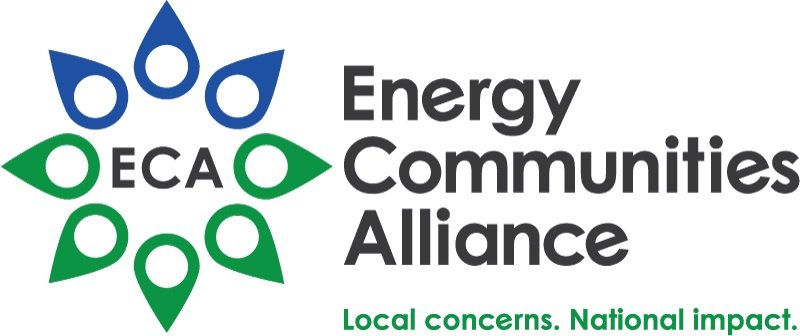NEVADA NATIONAL SECURITY SITE
Dashboard
-
In 1950, President Truman established what is now known as the Nevada National Security Site (NNSS) to perform nuclear weapons testing activities. In support of national defense initiatives, a total of 928 atmospheric and underground nuclear weapons tests were conducted at the NNSS between 1951 and 1992, when a moratorium on nuclear testing went into effect. Today, the NNSS is a large, geographically-diverse research, evaluation and development complex that supports homeland security, national defense, and nuclear nonproliferation.
Nye County, Nevada, is the host community of the NNSS, where there are National Nuclear Security Administration (NNSA), Environmental Management (EM), Legacy Management (LM) missions, in addition to the Yucca Mountain Nuclear Waste Repository nearby.
-
-
Consolidated Group of Tribes and Organizations, current liaison position filled by Richard Arnold (Full Liaison*)
The Consolidated Group of Tribes and Organizations (CGTO) has been a liaison to the NSSAB since 2013. The CGTO consists of 16 tribes with cultural and historic ties to the NNSS with specific interests in planning, developing, and monitoring EM activities at the NNSS.
-
Nevada Site Specific Advisory Board
The Nevada Site Specific Advisory Board is a part of the Environmental Management Site-Specific Advisory Board, a stakeholder board that provides the Assistant Secretary for Environmental Management and designees with independent advice, information, and recommendations on issues affecting the EM program at various sites. Among those issues are clean-up standards and environmental restoration; waste management and disposition; stabilization and disposition of non-stockpile nuclear materials; excess facilities; future land use and long-term stewardship; risk assessment and management; and clean-up science and technology activities.
Phone: (702) 523-0894; Email: nssab@emcbc.doe.gov
-
Mission Support and Test Services, LLC – Management & Operations
MSTS is made up of Honeywell International Inc. (Honeywell), Jacobs Engineering Group Inc. (Jacobs), and Stoller Newport News Nuclear, Inc. (SN3).
SOC – Protective Force Services
Navarro Research and Engineering, Inc. – Environmental Remediation
J.G. Management Systems, Inc. (JGMS) - Administrative support services for the NNSA Nevada Field Office
-
Federal Government
State Government
Local Government
-
Nevada National Security Site (Public Affairs)
Phone: (702) 295-3521; Email: Nevada@NNSA.doe.gov
Nye County Public Information Office
Arnold Knightly, Public Information Officer
Phone: (775) 751-4282; Email: aknightly@co.nye.nv.us
Site Budget
| FY 2024 Enacted | FY 2025 Request | FY 2025 House Bill |
|---|---|---|
| 73,352 | 63,377 | 63,377 |
(Defense Environmental Cleanup, Nevada. Amounts in thousands of dollars. Click here for the latest site budget.)
Rob Boehlecke
EM Program Manager, Nevada Program
Cleanup Issues
-
Transuranic and Solid Waste Disposition
Soil and Groundwater Remediation
-
In March 2022, the Office of Environmental Management released a Strategic Vision for 2022-2032.
Planned Cleanup Scope 2022–2032
Over the coming decade, the EM Nevada program expects to complete its current scope of cleanup activities safely, securely, and successfully at the NNSS. EM Nevada will continue to closely collaborate with local stakeholders, including the Nevada Site Specific Advisory Board (NSSAB), Intergovernmental Liaisons group, Low Level Waste Stakeholders Forum, and others, to to complete it’s cleanup in a manner that prioritizes the protection of people, communities, and the environment.
NNSA Missions
-
A primary mission of the NNSS is to help ensure the Nation’s nuclear weapons stockpile remains safe, reliable, and secure from our enemies. To accomplish this, Stockpile Stewardship deploys a wide range of science and technologies, focused on experiments in weapons science and the potential for weapons dismantlement.
-
NNSS global security efforts fall into five distinct areas: chemical, biological, radiological, nuclear, and explosive (CBRNE). These efforts encompass those activities that are, in most cases, direct outgrowths of NNSS’s historical work in nuclear weapons issues. These efforts include counterterrorism activities, bio-security projects, nuclear forensics and detection capability development, weapons and material protection, and emergency and event response. Threat reduction comprises those activities intended to reduce national security threats before they amass into distinct CBRNE threats.
Photo courtesy of NNSS.gov
Updated August 2022.
Information in this profile is sourced from DOE, NNSA, and the site’s online resources.


